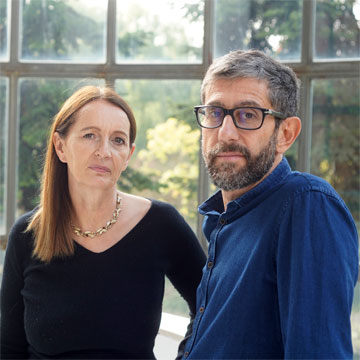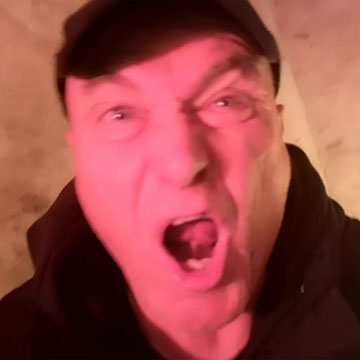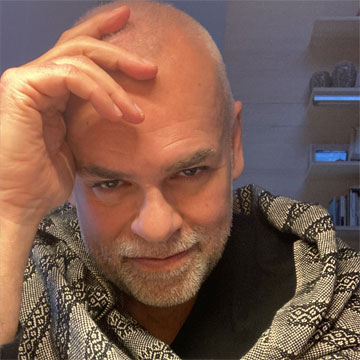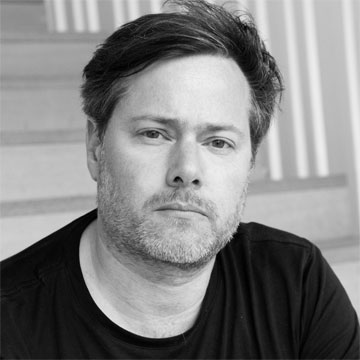Dates: 24 June – 3 July
Language: Italian and English
Target group: opera singers
Age: +18 > 40
Participants: up to 10
WORKSHOP
WORDS BECOME MUSIC
Verdi called it the ‘scenic word’: everyone knows how to perform an opera aria, but it is in the wonderful gaps between a duet and a concertato that the dramaturgical heart of any melodrama lies.
Let's start with DON GIOVANNI, the opera that more than any other escapes from a conventional dramaturgy and where each character draws its own character in the recitatives: from here we can range from baroque and then bel canto recitatives to declamation to 20th century music; everything will contribute to creating that fundamental red thread that unites music and stage action, body and voice. (Rosetta Cucchi)
VOICE IS BODY
My contribution will be to use movement as a language. To construct workshop labourite’sinvolving movement and acting. To devise work to help the singer become more freer to contribute to the production process. To help the singer feel much more comfortable with their body… and to facilitate movement and vocal exercise.
I intend to do use a lot of theatre and or dance improvisational techniques to help the singers break through into a more dynamic creative process.
Building scenes, exploring acting techniques, researching character, and playing with different theatrical dynamics. (Ron Howell)
*
Red paints the passion that sometimes becomes anger, exaltation or despair for everything you deeply love. This passion, which has run through my entire life as a musician and director, has directed my choices for better or worse. (Rosetta Cucchi)
To me Red has quite a few meanings and significance: Danger. Stop. Anger. Hate. Sex and Violence.
All these emotion states we use on a daily basis and in differing quantities and qualities. Of course for an actor (which an Opera singer has to be, to be successful) these primary Red states are fundamental to character analysis. Isolating these states and using them in a much more sophisticated manner can enhance nuance and subtlety to a performance. (Ron Howell)
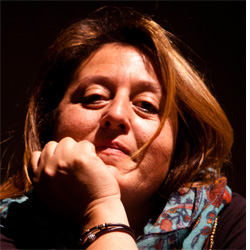 ROSETTA CUCCHI
ROSETTA CUCCHI
Rosetta Cucchi studied at the Conservatorio "G. Rossini" in Pesaro and at the DAMS University in Bologna. Graduated in Piano and History of Music. Master's degree at the Scuola di Alto Perfezionamento Pianistico di Imola. Winner of numerous piano competitions in Italy and abroad, she has collaborated as a pianist with the Orchestra Sinfonica della RAI in Rome and has been involved in several RAI opera productions.
Her career as pianist for singers such as Mariella Devia or Sonia Ganassi or Juan Diego Florez has taken her to the most important theatres in the world.
She soon embarked on a parallel career as a director, making her theatre debut with Il passo dell'anima, her text and direction, music by Carlos Gardel and the participation of Lella Costa, and in the world of opera, with a successful production of Rossini's La scala di seta.
Known both as an inventive producer and as a pianist, Rosetta Cucchi has established herself as one of the most innovative Italian opera directors of her generation.
In 2021 she produced, in collaboration with Teatro Comunale Bologna and RAI Italian Radio and Television, an Opera-Movie of Adriana Lecouvreur by F. Cilea broadcast by Rai 5.
In 2022 she will be involved in the revival of Adriana Lecouvreur at Oviedo Opera and Sydney Opera, a new production of L'amico Fritz at Maggio Musicale Fiorentino, Eugene Onegin at Opera Omaha (US) and Rossini's Otello at Rossini Opera Festival.
From 2005 to 2018 she was Artistic Director of the Fondazione Arturo Toscanini in Parma.
Since 2020 she has been the new Artistic Director of Wexford Festival Opera.
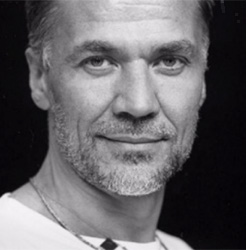 RON HOWELL
RON HOWELL
British Choreographer Ron Howell studied at the London Contemporary Dance School. He was the founder member of ARC Dance and later founded his own company The Dance Collective. In his extensive work in opera he has choreographed for companies including the Metropolitan Opera (New York); Mariinsky Theatre, Lyric Opera of Chicago, Teatro Real (Madrid); La Scala (Milan); Glyndebourne Festival, The Rossini Opera Festival (Pesaro); Teatro Nacional de São Carlos (Lisbon); The Royal Opera House (Covent Garden, London); and Teatro Massimo (Palermo).
Howell is Associate Director, Movement Director and Choreographer of Birmingham Opera Company.
Opera productions include:
The Queen of Spades, Eugen Onegin, Manon Lescaut, The Marriage of Figaro, Così fan tutte, Don Giovanni (Glyndebourne Festival); The Marriage of Figaro (English National Opera); Mitradate, Re di Ponto, Die Meistersinger, Arianna, Midsummer Marriage, Falstaff, Tamerlano (Royal Opera House); The Ring, Zaide, Les Boréades, Silas Marner, Vixen Sharp Ears (C.B.T.O.); Falstaff (Welsh National Opera); War and Peace (Kirov); The Queen of Spades (Chicago); Macbeth, Eugen Onegin, Luciano Berio’s World Premiere Outis, Die Tote Stadt (La Scala); Candide (Batignano); Lady Macbeth of Mtsensk, Moses and Aaron (Metropolitan Opera); King Arthur (Châtelet, Caen, Royal Opera House); Mitridate Re di Ponto (Sydney); Parsifal (Opéra National de Paris); Transformations (St. Louis); Moïse et Pharaon, Guillaume Tell (Pesaro); La Traviata (Verona, BOC); Les Troyenst, Idomeneo, Tamerlano, Macbeth (Florence); Woytsek, Mortal Combat, Don Giovanni, Il Ritorno d'Ulisse, Fidelio, Il ballo delle ingrate, Le Sacre du Printemps, Idomeneo, Otello, Mitwoch aus Licht Kovansky Gate, The Ice Break, Dido and Aeneas, Lady Macbeth of Mtsensk (BOC); Manon Lescaut, Lauriane, The Ring Alceste (Lisbon); L’Orfeo (Ravenna); Tannhäuser (Los Angeles/Athens); Sea of Souls (Royal Opera House 2), La Rodine, Manon Lescaut (Venice); Die Gezeichneten, The Ring (Palermo); Idomeneo + Lady Macbeth of Mtsenk (Gottenburg); Death of Venice (Berlin StatsOper); Stufelio (Parma); Wake a New World Premiere by Italian Composer Giorgio Battistelli (BOC); Magic Flute (Macerata, Italy); Don Giovanni, Zaide (Como); Mahagonny, Figaro, Don Giovanni, Zaide (Rome Opera); Paria (Poznan)
Future works include:
Opera Workshop (Biennale Teatro, Venice)
Robert the Devil (Palermo)
 MARIA LUISA MACELLARO LA FRANCA
MARIA LUISA MACELLARO LA FRANCA
Acclaimed by international critics, she is considered as one of the most interesting orchestra conductors of the new generation. (Photo © JRAW STUDIO)
In addition to conducting, Maria Luisa Macellaro La Franca is a well-known pianist, her repertoire ranges from ancient music on old instruments to modern music.
She began to study piano, composition and conducting at the V. Bellini Conservatory of Palermo where she graduated with honors in 2000. Then she specialized in the prestigious Zurich Musik Hochschule in Zurich where she also graduated in jazz, composition, chamber music and early music, with honors. Winner of innumerable prizes in national and international piano competitions (Osimo Coppa Pianisti d'Italia 1996, IBLA Grand Prize 2000 New York , Elsy Mayer Stiftung Zurich 2003) a very young career began that led her to perform in various countries and theaters such as the Teatro Politeama of Palermo, the Opera of Bordeaux, Theater of the MAM Museum and Institute of Italian Culture of Rio de Janeiro, Synagogue of Berlin and Halle of the Upper Conservatory of Dusserldorf, Auditorium de Los Andes Mendoza, Halle of the Banco Hipotecario Lujan in Argentina, Grosser Saal Zurich , Boccadoro Theater in Lugano, Collado Villalba Culture Center in Madrid, Grand Theater Osaka in Japan, Presidential Hall in Ankara (Turkey) and others.
As a composer, Maria Luisa was honored with several awards: for the "Cantate pour la mort de Falcone et Borsellino" she received the "Envie d'Agire" award for best musical creation in 2009, LABEL IDDAC 2009 for the best French theater opera 2009 and she was then appointed Ambassador of Culture in the world 2012 for Italy. For the composition "Emes Symphonie" she received the “Prix du Conseil General de Gironde”, Ambassador Human Rights I.H.R.O.2013, Ambassador for the women rights in Music 2014, International Human Rights Commission IGO as Goodwill Ambassador for Peace and ART Solunto festival Price 2016 . She won in 2019 Premio DONNA di Fiori ( for her engagement for women composer) and « Torre Normanna Solunto art festival » ( for her brilliant career 2019).
She is regularly invited as an artist in different international festivals both as a pianist and as a conductor: Rio International Harp Festival (Brazil), Swiss Harp Festival, Festival d'Arles, Semaine Musical de Bayonne, Estivales en Charente Maritime, Cap Ferrat Music Festival ( France), Armonie d'Autunno (Italy), IBM International Berlin (Germany) For the 2011/2012 season she was the permanent conductor of the "Molto Assai" orchestra, with which she performed on several tours in southern France. From September 2015 Maria Luisa has been the Principal Conductor of the prestigious UNISSON ACME Orchestra of Bordeaux and « Les virtuoses de Bordeaux » chamber orchestra . Her original lyrical and Symphonic works are regularly performed by French and Italian Orchestra (CSF33 chamber orchestra Bordeaux, Polyphonie à Eysines , Orchestra Sinfonica Sanremo, Orchestra Sinfonica Siciliana, Unisson Acme Orchetra) and her chamber music pieces are performed by great French personalities: her last piece for cello "Sharade" was recorded and performed on a world tour by the great French cellist Etienne Peclart and recorded with the Triton label. Maria Luisa has recorded in 2017 for the Da Vinci Classic Osaka, "Liszt Erard 1852" on fortepiano Erard ( one of the most downloaded titles from spotify 2017 ) and in 2018 a CD with the Nocturnes of Fauré et Charlotte de Rotschild. In December 2017 she made her debut in Japan with a recital on the romantic repertoire at the Grand Front Theater in Osaka. In April 2018 she made her debut as a conductor in Ankara (Turkey) conducting the Baskent Akademik Orkestra. Maria Luisa also made her debut in June 2018 with The Orchestra Sinfonica Siciliana in world streeming TV with a great succes ( 2500 persons came). Maria Luisa made her debuts as conductor, December 27 in Naples with Bulgaria Classic Symphony orchestra and 7 march Sanremo Symphony orchestra (with a prima of the Ina Boyle's violin concerto, in collaboration with Ina Boyle fondation in Dublin and Razvan Stoica as violin soloist). Maria Luisa made her debut too in June with Pitesti Philarmonic orchestra and Craiova Philarmonic orchestra ( Romania).
For the season 2019-2020 she toured Australia, Hong Kong and Europe as conductor.
*
In addition to the requested personal data, applicants must provide the following:
· Curriculum vitae (in Italian or English)
· Motivational letter and ideas on what the candidate expects from the workshop (in Italian or English)
· Video (also amateur) with an aria from your own repertoire
· List of arias or duets from your repertoire
 ROSETTA CUCCHI
ROSETTA CUCCHI RON HOWELL
RON HOWELL MARIA LUISA MACELLARO LA FRANCA
MARIA LUISA MACELLARO LA FRANCA